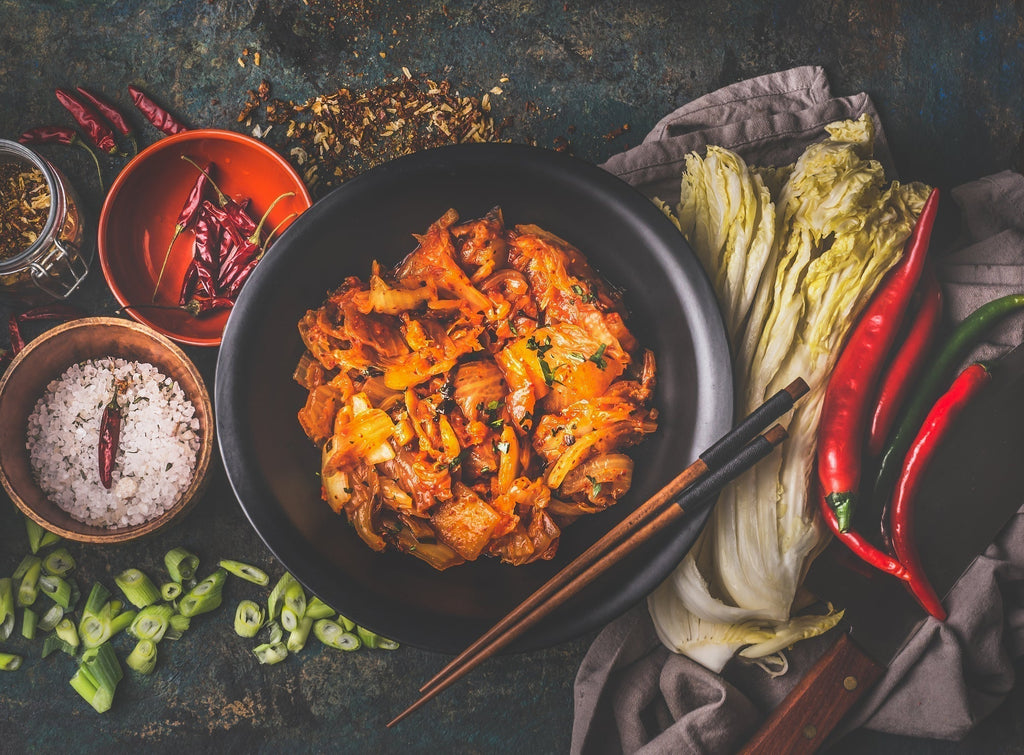The Global Rise of Korean Fermented Foods: A Market Opportunity for Australia
- May 04, 2025
- 0 Comments
Korean cuisine has surged in global popularity, driven by its bold flavours, health benefits, and cultural richness. Among its most iconic elements are fermented foods like kimchi, gochujang (fermented chilli paste), and doenjang (soybean paste), which are deeply rooted in tradition yet adaptable to modern culinary trends. This article explores the cultural significance of Korean fermented foods, their current global and Australian market trends, and strategies for leveraging these flavours in Australia’s diverse food landscape.

The Tradition of Fermented Foods in Korean Cuisine
Fermentation is a cornerstone of Korean culinary heritage, dating back thousands of years. Historically, fermentation was a practical method for preserving food through harsh winters, but it also unlocked complex flavours and health benefits.
Kimchi, Korea’s national dish, is made by fermenting vegetables (typically napa cabbage or radish) with chilli powder, garlic, ginger, and salted seafood. Rich in probiotics, vitamins, and antioxidants, it plays a key role in Korean meals and communal culture.
Gochujang, a fermented red chilli paste, blends sweet, savoury, and spicy flavours. Made from chilli powder, glutinous rice, fermented soybeans, and salt, it is used in stews, marinades, and sauces, adding umami depth to dishes.
Doenjang, a fermented soybean paste, is essential in soups and dipping sauces. Like miso, it undergoes lengthy fermentation, developing a deep, savoury flavour packed with protein and beneficial enzymes.
These fermented foods embody Korea’s "jeong"—a cultural concept of emotional connection and care, as they require time, patience, and craftsmanship.

Current Korean Food Trends: Fermentation Goes Global
Korean fermented foods are gaining international traction due to rising demand for health-conscious, bold-flavoured, and plant-based foods.
The global shift towards functional foods has boosted kimchi’s popularity as a natural probiotic. Meanwhile, gochujang and doenjang are being embraced for their umami richness, enhancing Western dishes like burgers, pizzas, and salad dressings.
Additionally, the plant-based movement aligns well with fermented Korean ingredients, as they offer sustainable, clean-label alternatives to artificial flavour enhancers.

Opportunities in the Australian Market
Australia’s multicultural food scene and health-conscious consumers make it a prime market for Korean fermented products.
Retailers can expand offerings with pre-packaged kimchi and sauces in supermarkets, while subscription-based kimchi kits could appeal to home cooks. Restaurants can innovate with Korean-Australian fusion dishes, such as kimchi fried rice bowls or gochujang-glazed meats.
Marketing strategies should highlight probiotic benefits and leverage the Hallyu wave (K-pop, K-dramas), which has already boosted interest in Korean culture. Partnering with local farmers for sustainable, locally sourced ingredients can also enhance appeal.

Challenges and Considerations
While the potential is vast, businesses must navigate taste adaptation, as some Australians may find fermented flavours too intense. Introducing milder versions or hybrid products could ease adoption.
Supply chain logistics and consumer education are also key. Proper storage and handling are essential for fermented products, while cooking demos and in-store tastings can help familiarise consumers with these flavours.
Conclusion
Korean fermented foods offer a perfect blend of tradition, health, and bold flavours, making them a strong contender in Australia’s evolving food market. By leveraging health trends, fusion cuisine, and K-culture appeal, businesses can introduce these ancient flavours to a modern audience.
For food entrepreneurs, the message is clear: fermentation isn’t just a trend—it’s a timeless tradition ready for global tables.
Call ICE Group now on 02 4228 0100 or apply online for funding at https://www.icegroup.com.au/pages/silverchef-application.











